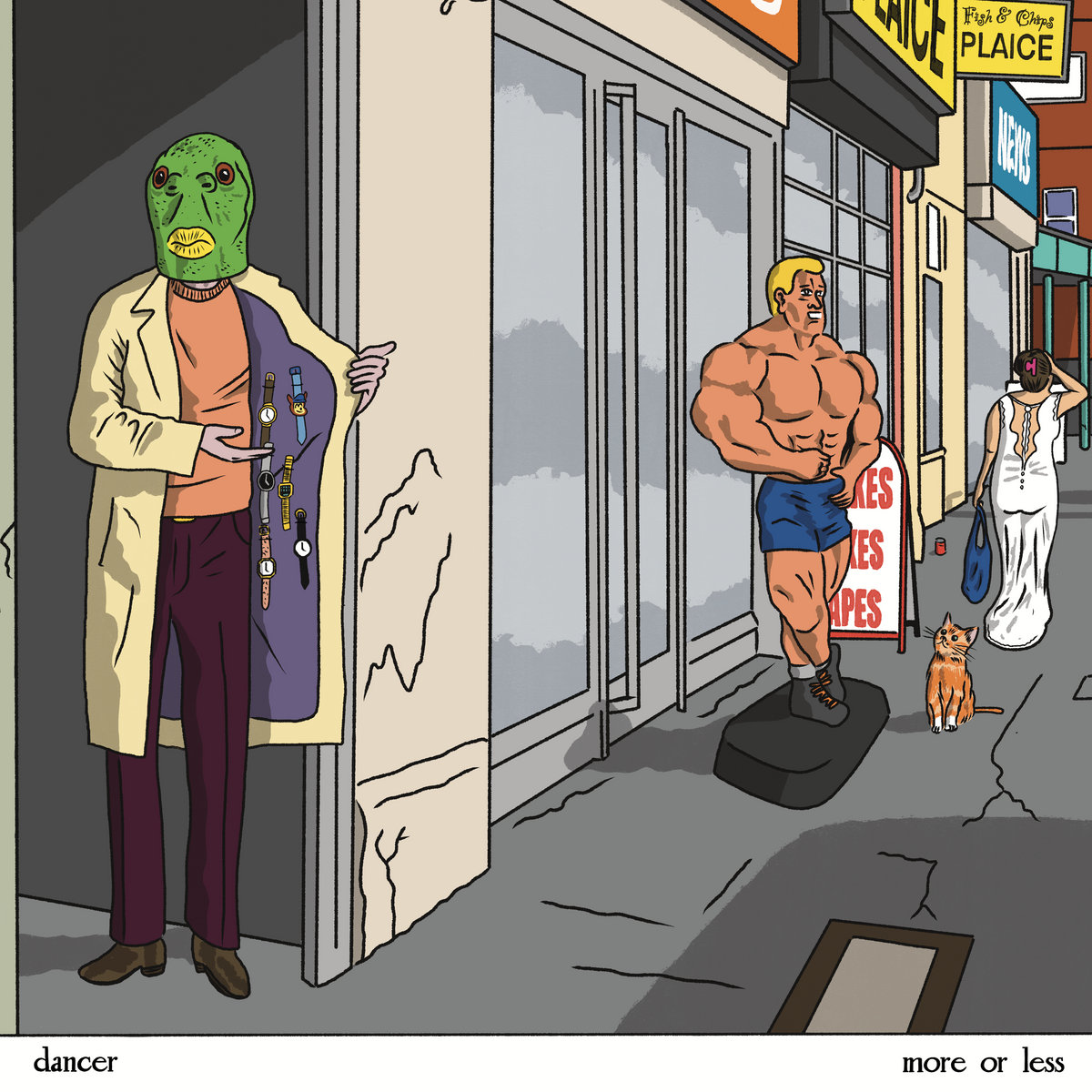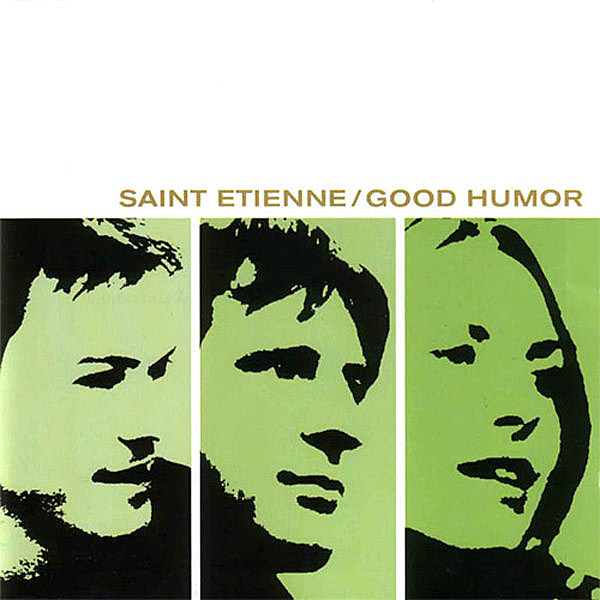Now Reading: Indie Basement (9/5): the week in classic indie, alternative & college rock
-
01
Indie Basement (9/5): the week in classic indie, alternative & college rock
Indie Basement (9/5): the week in classic indie, alternative & college rock

What year is this? I just saw Oasis and Nine Inch Nails in massive venues (also Cast), and this week I’m reviewing (great) new albums from Saint Etienne, Suede, and Ivy…it’s A Very 1994 Indie Basement. I’m happy to say the Class of ’94 is doing and looking great. Also this week we’ve got the latest from whippersnappers Shame and Dancer. This week’s Indie Basement Classic heads back to the ’90s as well.
Over in Notable Releases, Andrew listens to new ones from Big Thief and David Byrne, which I reccomend giving a spin too, plus Fleshwater, Shallowater, Georgia Maq, and more.
If you didn’t realize, I’m doing interviews for BrooklynVegan’s interview podcast and this week’s guests are Alexis and Joe of Hot Chip. Meanwhile, I also make an appearance on today’s episode of BV Weekly where I talk Oasis, Nine Inch Nails, Saint Etienne, Suede, and Cast with Andrew and Dave.
In other Basement-friendly news: Pulp announced a 30th anniversary box set edition of Different Class; Radiohead have come out of hibernation; Yo La Tengo have announced their 2025 Hanukkah run at Bowery Ballroom; Guided by Voices announced their 42nd album; Vivian Girls are back and touring; and would you like to buy The Smiths?
ALBUM OF THE WEEK #1: Saint Etienne – International (Heavenly)
Saint Etienne go out with a bang on their fantastic final album that is full of cool collaborators and great songs
Nooooooo! Don’t leave! Saint Etienne have made some of the best, smartest, most sophisticated pop of the last 35 years, but Bob Stanley, Pete Wiggs, and Sarah Cracknell—still best friends—have decided to retire the project. They’re going out with a bang, though: their final salvo has pretty much everything you could want from a Saint Etienne album.
They’ve also invited a lot of talented friends to the party, including The Chemical Brothers, Orbital, Vince Clarke, Erol Alkan, Confidence Man, pop hitmakers Xenomania, Haircut 100’s Nick Heyward, and more. Sometimes too many cooks spoil the broth, but in this case everyone understands the assignment and brings ideas that fit perfectly under the trio’s pastel-colored sonic umbrella.
There are three instant classics: album opener “Glad,” co-written with Chemical Brothers’ Tom Rowlands and Doves’ Jez Williams, is a banger powered by chopped-up orchestra hits, vocal samples, and the kind of soaring chorus Williams always delivered in Doves; the pure sophistipop sunshine of the Confidence Man collab “Brand New Me,” a spiritual cousin to 1991’s “Nothing’s Gonna Stop Us”; and the dubby, acid-house-infused “Take Me to the Pilot,” made with Orbital’s Paul Hartnoll.
But the rest of International is nearly as good. Erol Alkan’s “Sweet Melodies” perfectly nails the suave Saint Etienne aesthetic. “Two Lovers” is both very Vince Clarke (bubbly Erasure-style synthpop) and very Saint Etienne. The only disappointment about the Nick Heyward duet “The Go Betweens” is that it’s not about the Australian band The Go-Betweens (though it certainly could’ve been). The two Xenomania collaborations, “He’s Gone” and “Dancing Heart,” carry the same modern Europop sparkle that made their work on 2012’s Words & Music (my favorite album that year) so irresistible.
The whole record plays like a Best Of retrospective, but with all new songs, and it ends perfectly with “The Last Time,” a bittersweet look back at the band’s career that may leave longtime fans misty-eyed. International is a perfect way to say goodbye.
—

ALBUM OF THE WEEK #2: Suede – Antidepressants (BMG)
One of the most unexpected second acts continues to bear midnight blooms; Suede’s 10th album is fantastic.
“If Autofiction was our punk record,” Suede frontman Brett Anderson says, “Antidepressants is our post-punk record.” This writer thinks of Autofiction as Suede’s goth album, and the new one is even more so. Of course, goth grew out of the original post-punk scene, and the touchstones here are The Cult circa Love, The Chameleons, Bauhaus, Siouxsie, and Faith-era Cure, as opposed to Floodland or Fields of the Nephilim. It’s a natural extension of Suede’s signature “beautiful trash” glammy sound, and the jagged yet manicured arrangements on their 10th album—they’ve now made as many since reforming as they did the first time around—befit a group whose members are in their 50s and still, y’know, rocking out credibly.
They do it so well, too: Matt Osman’s basslines are dark and melodic; Richard Oakes mixes big riffs, wiry leads, and atmospherics; Neil Codling coaxes icy tones from his keyboards; Simon Gilbert remains a subtle beast behind the kit; and of course, Anderson’s voice has always carried that dark melodrama. Also the cover art, based on a photo of Francis Bacon from a 1962 issue of Vogue, is none more goth. The songs, recorded mostly live by longtime Suede producer Ed Buller, are memorable and grand, with “Dancing With the Europeans,” “Disintegrate,” “Life is Endless, Life is a Moment,” and “Antidepressants” all quintessentially Suede. Bring on the night.
—

Shame – Cutthroat (Dead Oceans)
John Congleton helps the UK post-punks deliver their catchiest batch of songs yet without losing one ounce of attitude
UK band Shame grab you right up front on their fourth album — and first in nearly three years — with a doozy of an opening line: “Big, beautiful, naked women fall out the sky / Motherfucker, I was born to die.” Frontman Charlie Steen cites Oscar Wilde as an influence on Cutthroat’s heavy-riffing title track, and though it’s been a while since I took an English literature class, I don’t remember anything quite like that in The Importance of Being Earnest.
Shame don’t let go of the listener after that either. This is an album packed with some of their catchiest, poppiest songs to date. After working with Flood on 2023’s Food for Worms, they turned to John Congleton to up the hooks and nitro-fuel their sound. The attitude was already there in spades. “It’s about the cowards, the cunts, the hypocrites,” Steen says. “Let’s face it, there’s a lot of them around right now.”
Cutthroat is also Shame’s most fun record, veering into electronic dance music, ’90s-era Beastie Boys/alt-rock, and the ’00s UK indie revival without losing their edge. It’s not a level-up on the scale of Fontaines D.C.’s ROMANCE, but Cutthroat makes a convincing argument that they’re not far behind.
—

Ivy – Traces of You (Bar None)
Ivy honor Adam Schlesinger with a graceful return created from unfinished gems in their archive
The world thought IVY was gone after 2012, and for a time we did too,” says Ivy cofounder Andy Chase, whose last album came out at the dawn of the 2010s. “And after Adam’s death in 2020 it seemed certain.” But after Adam Schlesinger’s passing at the start of the pandemic, Chase and singer Dominique Durand began combing through their archives, revisiting unfinished songs and rediscovering many gems anchored by Adam’s distinctive basslines. With Adam’s family’s blessing, they decided to finish their favorites.
In Ivy, Schlesinger’s bass playing always fell somewhere between Serge Gainsbourg-style grooviness and the melodically driven style of New Order or The Cure, and it’s one of the distinguishing elements of Traces of You. That, and the songs themselves—like most everything Ivy have done—are beholden to ‘80s alt-pop acts such as Prefab Sprout, Everything But the Girl, The Style Council, and Orange Juice. They’re as memorable as the best of the band’s catalog. It’s a terrific addition to Ivy’s body of work and a wonderful tribute to Schlesinger.
—

Dancer – More or Less (Meritorio)
Glasgow’s Dancer bring shouty charm and punk spirit to their second album that fits nicely into their hometown’s indie tradition
Not to be confused with the 2010s-era US garage rock band of the same name, this Dancer hails from Glasgow, Scotland and make the kind of shambolic, charming, and shouty indiepop that has a long tradition in the city. Dancer have more than a little punk attitude, which is all over their second album—apparently originally titled just “More” until they saw the news from Pulp.
If they’d been around in 1984, they would’ve fit right in with what Jarvis and co were doing back then. More or Less mixes a little lo-fi new wave into their style—which is more skilled and nuanced than it first appears—and throws in a little Life Without Buildings sprechgesang for good measure. Fun.
—

INDIE BASEMENT CLASSIC: Saint Etienne – Good Humor (Creation Records, 1998)
With Saint Etienne’s final album out this week, let’s look back at arguably the best, and certainly most different, record in their catalog
After three albums of sample-based dance pop, Bob Stanley, Pete Wiggs and Sarah Cracknell changed course and decamped to Malmö, Sweden, to make a full-band Saint Etienne record with Cardigans producer Tore Johannsen at his famed Tambourine Studios. Armed with a group of crack session musicians, Good Humor is unlike any other record in Saint Etienne’s catalog before or since, weaving in elements of exotica, acid jazz, Northern Soul and Beach Boys/Phil Spector-style wall-of-sound pop.
While I love all their albums, there’s a timeless quality to Good Humor that keeps it sounding especially fresh. Maybe it’s all the harpsichord, mellotron, and Fender Rhodes. Singles “Sylvie” and “The Bad Photographer” were both Top 30 UK hits — and still not the best songs here. Those would be “Lose That Girl,” “Been So Long,” “Erica America,” and “Goodnight Jack.” Good Humor also remains Saint Etienne’s biggest seller in the US, where it was released by Sub Pop. It’s their best album (and Bob Stanley agrees).
Looking for more? Browse the Indie Basement archives.
And check out what’s new in our shop.
The 20 Best Britpop Albums of 1995















































